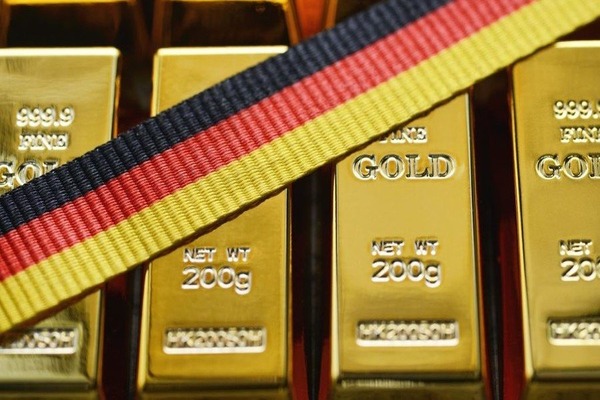
Saya pernah merasa tidak nyaman dengan biaya tersembunyi saat membeli emas. Ketegangan itu membuatku cemas. Saya menyadari ada cara yang lebih sederhana untuk memahami aturan perpajakan.
Ya. Berdasarkan undang-undang pajak Jerman saat ini, emas bisa bebas pajak setelah satu tahun kepemilikan. Setelah Anda menahannya setidaknya selama dua belas bulan, Anda biasanya menghindari pajak keuntungan modal.
Banyak teman saya yang menginginkan kejelasan ini juga. Saya mencari lebih dalam dan menemukan rincian mengejutkan mengenai waktu, kerangka hukum, dan potensi kendala.
Apakah saya harus melaporkan emas di Bea Cukai Jerman?
Dulu saya merasa bingung bepergian dengan membawa emas. Saya bertanya-tanya apakah saya akan menghadapi pengawasan ketat di bandara.
Jika Anda memasuki atau meninggalkan Jerman membawa emas fisik senilai 10.000 euro atau lebih dalam bentuk uang tunai, Anda harus menyatakannya. Barang-barang lain seperti perhiasan biasanya tidak memerlukan pernyataan tunai.
Kompleksitas peraturan bea cukai
Saya mengetahui bahwa Bea Cukai Jerman membedakan antara aset yang berbentuk mata uang dan barang pribadi. Emas batangan dan koin mungkin dianggap serupa dengan uang tunai jika melebihi ambang batas nilai tertentu. Para pejabat ingin melacak sejumlah besar uang untuk mencegah aktivitas ilegal. Saya mengingat aturan ini untuk menghindari ketidaknyamanan.
Pedoman utama di Bea Cukai
Saya membuat tabel singkat untuk memandu diri saya sendiri setiap kali saya bepergian:
| Pedoman | Penjelasan |
|---|---|
| Ambang Nilai | 10.000 euro (atau setara dalam mata uang asing) |
| Aset Setara Kas | Emas batangan, koin, wesel bank, cek |
| Barang Pribadi (misalnya perhiasan) | Biasanya dikecualikan dari persyaratan deklarasi tunai |
| Dokumentasi | Surat perjalanan, faktur, atau bukti kepemilikan |
| Nyatakan Saat Ragu | Lebih baik memberi tahu Bea Cukai daripada mengambil risiko denda atau penyitaan |
Pengalaman pribadi saya dengan pemeriksaan Bea Cukai
Saya pernah membawa beberapa koin peringatan ke sebuah pameran. Saya pikir itu adalah barang koleksi yang tidak berbahaya. Petugas Bea Cukai menjelaskan aturan ambang batas. Saya memberikan detailnya dan tidak mengalami masalah. Itu membuat saya lebih percaya diri tentang perjalanan selanjutnya.
Apakah koin Jerman berharga?
Saya pertama kali terpesona oleh koin-koin Jerman kuno ketika saya masih kecil. Keingintahuan saya tumbuh ketika saya mengetahui tentang sejarah unik dan pencetakannya.
Ya. Banyak Koin Jerman memiliki nilai koleksi yang besar1. Karya-karya kuno dari era kekaisaran, seri peringatan khusus, dan edisi terbatas menarik minat yang kuat di kalangan ahli numismatis dan penghobi di seluruh dunia.
Nilai sejarah dan daya tarik kolektor
Beberapa koin dari Kekaisaran Jerman memiliki desain yang rumit. Narasi sejarah mereka mencakup monarki dan peristiwa yang berbeda. Warisan ini meningkatkan permintaan mereka. Para kolektor mengagumi detail halusnya. Kekaguman tersebut seringkali mendorong harga pasar lebih tinggi dari sekedar kandungan logamnya.
Apa yang membuat koin lebih diminati?
Saya memperhatikan beberapa faktor yang meningkatkan nilai sebuah koin:
- Keanehan: Jumlah cetakan yang lebih rendah dapat menyebabkan harga yang lebih tinggi.
- Kondisi: Koin yang terpelihara dengan baik dan bertingkat dapat menghasilkan penawaran premium.
- Konteks Sejarah: Karya-karya peringatan dari peristiwa penting sering kali memiliki nilai emosional dan moneter.
- Dukungan Komunitas: Banyak forum online dan klub kolektor bertukar pengetahuan, sehingga meningkatkan keterlibatan pasar.
Membandingkan koin Jerman dengan koin lain
Saya pernah membandingkan set koin peringatan Jerman dengan rilisan Prancis dari era yang sama. Keduanya memiliki makna budaya. Namun, set Jerman memiliki lebih banyak variasi pencetakan. Cakupan luas tersebut menarik bagi kolektor khusus. Hal ini mengajarkan saya bahwa keragaman dalam desain dapat memicu lebih banyak permintaan.
Referensi cepat untuk nilai koin
Saya menyusun tabel sederhana untuk mengingat faktor-faktor utama:
| Faktor | Keterangan |
|---|---|
| Keanehan | Jumlah koin yang dicetak atau bertahan |
| Kondisi | Skala penilaian dari Miskin hingga Mint State |
| Era Sejarah | Periode penerbitan (Imperial, Weimar, dll.) |
| Tanda Khusus | Tanda rahasia, kesalahan, atau prangko edisi terbatas |
| Tren Pasar | Minat kolektor bisa melonjak secara tak terduga |
Di mana saya dapat menemukan koin berlapis emas untuk mengajar atau hobi?
Saya terkadang menerima pesan dari guru dan staf museum yang membutuhkan koin khusus untuk ceramah atau pajangan. Saya juga bertemu dengan kolektor biasa yang menginginkan desain khusus dalam jumlah terbatas.
Dimungkinkan untuk memesan koin berlapis emas dari produsen khusus. Mereka menawarkan penyesuaian desain, harga grosir, dan pemeriksaan kualitas yang konsisten untuk koleksi pendidikan dan pribadi.
Saya menjalankan merek bernama INIMAKER. Pabrik saya ada di China, dan kami memiliki empat jalur produksi. Kami mengekspor medali, lencana, koin peringatan, dan koin tantangan ke Amerika Serikat, Rusia, Prancis, Inggris, dan banyak lagi. Model bisnis kami berfokus pada grosir B2B, yang cocok untuk pembeli korporat besar, museum, dan dealer koin. Saya menyoroti penyesuaian mendalam sebagai fitur inti kami, cocok untuk pendidik atau penghobi yang menginginkan desain unik. Kami juga menggunakan saluran promosi yang berbeda seperti Alibaba, pameran, dan situs independen kami untuk menjangkau klien. Saya senang bekerja dengan orang-orang yang memiliki minat yang sama terhadap koin-koin unik, dan saya percaya dalam memastikan kualitas terbaik dan logistik yang andal.
Kesimpulan
Memahami peraturan pajak emas Jerman, deklarasi bea cukai, dan nilai koin Jerman dapat memandu kolektor dan wisatawan. Hal ini membantu menghindari stres dan menghasilkan keputusan yang percaya diri dan terinformasi dengan baik.
-
Tautan ini memberikan penjelasan rinci tentang faktor-faktor yang berkontribusi terhadap nilai koleksi koin Jerman, termasuk signifikansi sejarah dan kelangkaannya. ↩









